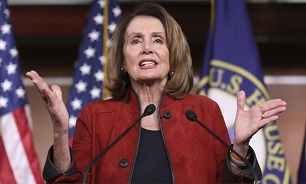Indicting A Sitting President ‘An Open Discussion in Terms of Law'
 "I think that that is an open discussion," Pelosi said on NBC's "Today", adding that "I think that is an open discussion in terms of the law".
"I think that that is an open discussion," Pelosi said on NBC's "Today", adding that "I think that is an open discussion in terms of the law".
"Today" co-host Savannah Guthrie asked Pelosi during an interview if Mueller "should honor and observe the [Department of Justice] guidance that states a sitting president cannot be indicted".
“I do not think that that is conclusive," Pelosi responded, noting that "no, I do not”.
She later said that lawmakers should see what Mueller reports and spend their "time on getting results for the American people".
She added that "everything indicates that a president can be indicted after he is no longer president of the US".
The comments come as Mueller's probe into Russian election interference and possible collusion between the 2016 Trump campaign and Moscow continues into 2019.
In December, Trump's former lawyer, Michael Cohen, was sentenced to 36 months in prison for a series of crimes he committed while working as Trump's personal attorney.
The sentence occurred after Cohen pleaded guilty to federal charges, including campaign finance violations stemming from hush-money payments to two women alleging to have had affairs with Trump more than a decade ago.
Prior to Cohen's sentencing, federal prosecutors in New York said in a memo that Trump directed Cohen to make illegal payments to the women, marking the first time prosecutors made those accusations against the president.
The allegations have led to scrutiny about the DOJ guidelines around indicting a sitting president.
Sen. Christopher Coons (D-Del.) stated last month that the evidence presented against Cohen "might well form the basis for an indictment after the president leaves office".
In a poll released last month, a majority of Americans said they think that a sitting president should be subject to indictment.
Seventy-one percent of respondents, including 49 percent of Republicans, said sitting presidents should be subject to indictment, while 21 percent said they shouldn't.
Message end/
